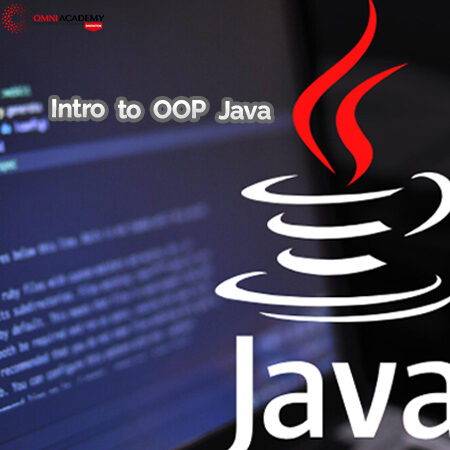CompTIA Network+ Training:
CompTIA Network+ validates the core skills necessary to establish, maintain, troubleshoot and secure networks in any environment, preparing you for a rewarding career in networking and cybersecurity.
Key Learnings:
- Networking Concepts
- Network Implementations
- Network Operations
- Network Security.
- Network Troubleshooting
Course Content:
Module 1.0: Networking Concepts
Explain concepts related to the Open Systems Interconnection (OSI) reference model
Compare and contrast networking appliances, applications, and functions.
- Physical and virtual appliances
- Applications
- Functions
Compare and contrast networking appliances, applications, and functions.
- Physical and virtual appliances
- Applications
- Functions
Summarize cloud concepts and connectivity options.
- Virtual private cloud (VPC)
- Network security groups
- Network security lists • Cloud gateways – Internet gateway – Network address translation (NAT) gateway
- Cloud connectivity options – VPN – Direct Connect
- Deployment models – Public – Private – Hybrid
- Service models – Software as a service (SaaS) – Infrastructure as a service (IaaS) – Platform as a service (PaaS)
- Scalability
- Elasticity
- Multitenancy
Explain common networking ports, protocols, services, and traffic types.
- Protocols
- Ports
- Internet Protocol (IP) types
Compare and contrast transmission media and transceivers.
- Wireless
- Wired
- Transceivers
- Connector types
Compare and contrast network topologies, architectures, and types.
- Mesh
- Hybrid
- Star/hub and spoke
- Spine and leaf
- Point to point
- Three-tier hierarchical model
- Collapsed core
- Traffic flows
Given a scenario, use appropriate IPv4 network address.
- Public vs. private
- Subnetting
- IPv4 address classes
Summarize evolving use cases for modern network environments
- Software-defined network (SDN) and software-defined wide area network (SD-WAN)
- Virtual Extensible Local Area Network (VXLAN)
- Zero trust architecture (ZTA)
- Secure Access Secure Edge (SASE)/Security Service Edge (SSE)
- Infrastructure as code (IaC)
- IPv6 addressing
Module 2.0: Network Implementation
2.1 Explain the characteristics of routing technologies.
- Static routing
- Dynamic routing
- Route selection
- Address translation
- First Hop Redundancy Protocol (FHRP)
- Virtual IP (VIP)
- Subinterfaces
2.2 Given a scenario, configure switching technologies and features.
- Virtual Local Area Network (VLAN)
- Interface configuration
- Spanning tree
- Maximum transmission unit (MTU)
2.3 Given a scenario, select and configure wireless devices and technologies.
- Channels
- Frequency options
- Service set identifier (SSID)
- Network types
- Guest networks
- Authentication
- Antennas
- Autonomous vs. lightweight access point
2.4 Explain important factors of physical installations.
- Important installation implications
- Power
- Environmental factors
Module 3.0: Network Operations
3.1 Explain the purpose of organizational processes and procedures.
- Documentation
- Life-cycle management
- Change management
- Configuration management
3.2 Given a scenario, use network monitoring technologies.
- Methods
- Solutions
3.3 Explain disaster recovery (DR) concepts.
- DR metrics
- DR sites
- High-availability approaches
3.4 Given a scenario, implement IPv4 and IPv6 network services
- Dynamic addressing
- Name resolution
- Time protocols
3.5 Explain disaster recovery (DR) concepts.
- Site-to-site VPN
- Client-to-site VPN
- Connection methods
- Jump box/host
- In-band vs. out-of-band management
Module4 Network Security
4.1 Explain the importance of basic network security concepts.
- Logical security
- Physical security
- Deception technologies
- Common security terminology – Risk – Vulnerability – Exploit – Threat – Confidentiality, Integrity, and Availability (CIA) triad
- Audits and regulatory compliance
- Network segmentation enforcement
4.2 Summarize various types of attacks and their impact to the network.
- Denial-of-service (DoS)/ distributed denial-of-service (DDoS)
- VLAN hopping
- Media Access Control (MAC) flooding
- Address Resolution Protocol (ARP) poisoning
- ARP spoofing
- DNS poisoning
- DNS spoofing
- Rogue devices and services
- Evil twin
- On-path attack
4.3 Given a scenario, apply network security features, defense techniques, and solutions.
- Device hardening
- Network access control (NAC)
- Key management
- Security rules
- Zone
Module5: Network Troubleshooting
5.1 Explain the troubleshooting methodology.
- Identify the problem
- Establish a theory of probable cause
- Test the theory to determine the cause
- Establish a plan of action to resolve the problem and identify potential effects
- Implement the solution or escalate as necessary
- Verify full system functionality and implement preventive measures if applicable
- Document findings, actions, outcomes, and lessons learned throughout the process
5.2 Given a scenario, troubleshoot common cabling and physical interface issues.
- Cable issues
- Interface issues
- Hardware issues
5.3 Given a scenario, troubleshoot common issues with network services.
- Switching issues
- Route selection
- Address pool exhaustion
- Incorrect default gateway
- Incorrect IP address
- Incorrect subnet mask
5.4 Given a scenario, troubleshoot common issues with network services.
- Congestion/contention
- Bottlenecking
- Bandwidth
- Latency
- Packet loss
- Jitter
- Wireless
5.5 Given a scenario, troubleshoot common performance issues.
- Software tools
- Hardware tools
- Basic networking device commands
Final Project
Target Audience
- IT professionals seeking to enhance their networking knowledge
- Entry-level network technicians
- Network support specialists
- Network analysts
- System engineers
- Network administrators
International Student Fees: USD 275
Job Interview Preparation (Soft Skills Questions & Answers)
- Tough Open-Ended Job Interview Questions
- What to Wear for Best Job Interview Attire
- Job Interview Question- What are You Passionate About?
- How to Prepare for a Job Promotion Interview
Stay connected even when you’re apart
Join our WhatsApp Channel – Get discount offers
500+ Free Certification Exam Practice Question and Answers
Your FREE eLEARNING Courses (Click Here)
Internships, Freelance and Full-Time Work opportunities
Join Internships and Referral Program (click for details)
Work as Freelancer or Full-Time Employee (click for details)
Flexible Class Options
- Week End Classes For Professionals SAT | SUN
- Corporate Group Trainings Available
- Online Classes – Live Virtual Class (L.V.C), Online Training
Related Courses
CompTIA Cyber Security Analyst (CySA+) Certification Training
CompTIA Security+ (SY0-701) Certification Training
CompTIA A+ Core 1 and Core 2 Exams 220-1101 and 220-1102 Training
CompTIA Advance Security Practitioner
CompTIA Cyber Security Analyst Advanced Course
CompTIA Cyber Security Analyst (CySA+) Certification Training






